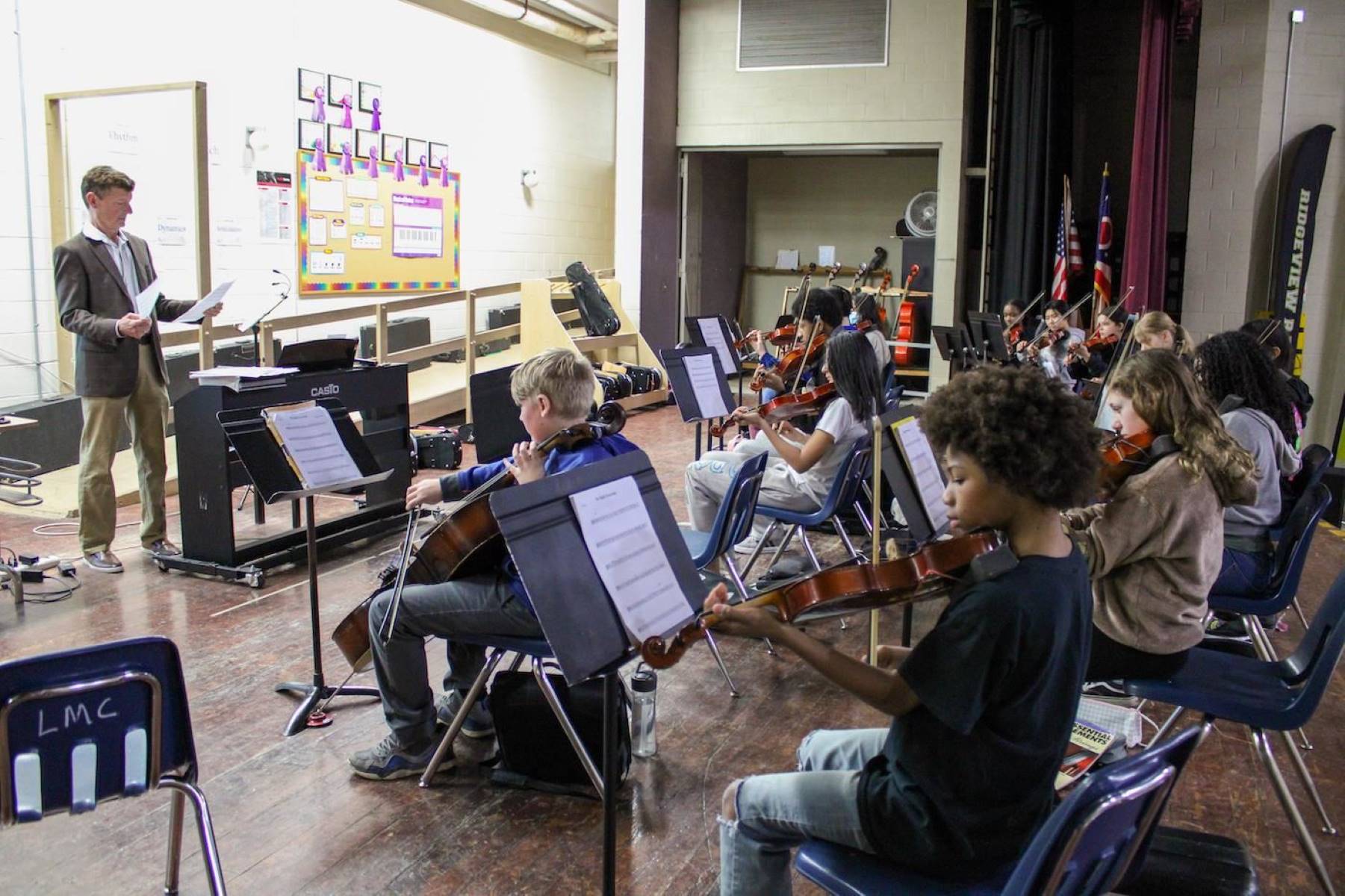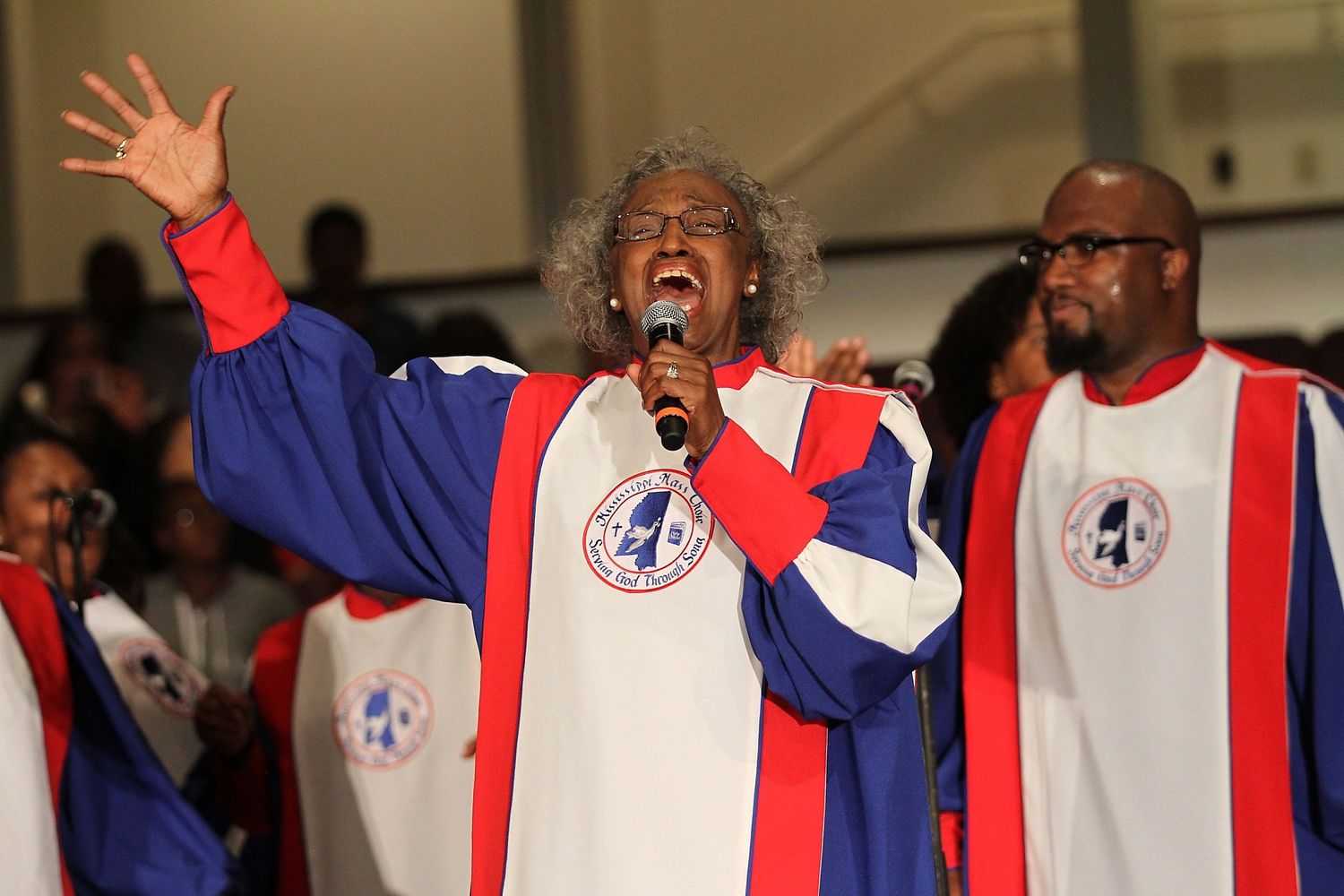

Rock
Who Started School Of Rock Music Schools?
Modified: January 29, 2024
Discover the founders of School Of Rock, the leading music school empowering aspiring musicians in the world of rock. Embark on an epic journey to unleash your inner rockstar!
(Many of the links in this article redirect to a specific reviewed product. Your purchase of these products through affiliate links helps to generate commission for AudioLover.com, at no extra cost. Learn more)
Table of Contents
Introduction
The School of Rock is a renowned institution that has revolutionized music education by merging traditional teaching methods with a unique and immersive approach. Founded in 1998, it has since evolved into a globally recognized network of music schools, providing aspiring musicians of all ages with the opportunity to learn, perform, and develop their skills in a vibrant and supportive environment.
Unlike traditional music schools that focus solely on theory and technical training, the School of Rock takes a hands-on approach. Their philosophy centers around the importance of live performance as a catalyst for growth and creativity. By immersing students in the world of rock and roll, they aim to ignite a passion for music and instill confidence, discipline, and teamwork.
With a dynamic faculty of experienced musicians, the School of Rock offers comprehensive programs that cater to both beginners and advanced musicians alike. From instrument lessons to band rehearsals, students are exposed to a wide range of musical genres, allowing them to expand their horizons and develop their own unique style. The emphasis on collaboration within a band setting fosters a sense of camaraderie and motivates students to push their boundaries.
The success of the School of Rock can be attributed to its innovative approach, which bridges the gap between traditional music education and the evolving needs of today’s aspiring musicians. By combining technical instruction with performance-based learning, they create an environment that is both educational and exhilarating.
In this article, we will delve into the origins of the School of Rock, explore the vision of its founders, examine its impact on music education, and learn about its current success as a leading institution in the field. Join us as we dive into the world of School of Rock and discover the driving force behind this groundbreaking music school.
The Origins of School of Rock
The School of Rock was founded in Philadelphia in 1998 by Paul Green, a passionate musician and educator. Green recognized the need for a music education platform that went beyond traditional methods and catered to the interests and aspirations of young rock enthusiasts.
Driven by his own experiences as a guitar teacher, Green aimed to create an environment where students could learn and perform the music they were passionate about. He believed that by immersing students in the world of rock and roll, they would not only enhance their musical skills but also develop invaluable life skills such as confidence, self-expression, and teamwork.
Green’s unconventional approach quickly gained recognition and popularity, attracting students of all ages and musical backgrounds. The success of the initial Philadelphia school led to the expansion of School of Rock into other cities across the United States.
As the School of Rock gained momentum, another key figure entered the scene – Rob Price. Price, a businessman with a passion for music, saw the potential in Green’s vision and joined forces with him. Together, they set out to take the School of Rock to new heights.
Under Price’s leadership, the School of Rock underwent further expansion, opening franchised locations across the country. This growth allowed the School of Rock to reach a broader audience and impact the lives of aspiring musicians in various communities.
Despite its rapid growth, the School of Rock never lost sight of its founding principles. The focus remained on providing a comprehensive music education experience that combined technical instruction with live performance opportunities.
By blending aspects of traditional music education with the excitement and energy of rock and roll, the School of Rock created a unique learning environment that resonated with students and their families. Through their programs, students had the chance to not only learn from experienced musicians but also be part of a band and perform live on stage, mirroring the experience of professional rock musicians.
The School of Rock’s dedication to fostering creativity, self-expression, and a love for music has continued to shape its identity and make it a distinct presence in the music education landscape. From its humble origins in Philadelphia to its widespread acclaim, the School of Rock has become a symbol of innovation and excellence in music education.
The Founders of School of Rock
The School of Rock was founded by two individuals who shared a passion for music and a vision to transform music education. Paul Green, a musician and educator, and Rob Price, a businessman with a love for music, joined forces to create a revolutionary approach to teaching and learning rock music.
Paul Green, the co-founder of the School of Rock, was born and raised in Philadelphia. As a self-taught guitarist, Green developed a deep appreciation for rock music and recognized the transformative power it had on his own life. Inspired by his personal journey, Green sought to create a space where aspiring musicians could immerse themselves in rock and roll culture, receive top-notch instruction, and experience the thrill of performing live on stage.
Rob Price, the other co-founder, brought his expertise in business and a fervent passion for music to the partnership. Seeing the potential in Green’s vision, Price was eager to support and expand the School of Rock. With his entrepreneurial mindset, Price played a pivotal role in turning the School of Rock into a successful and influential network of music schools.
Together, Green and Price brought complementary skills and a shared dedication to revolutionizing music education. Their collaboration and unwavering commitment to the School of Rock’s mission propelled the institution to great heights.
Throughout their journey, Green and Price faced numerous challenges and obstacles. From finding suitable locations for the schools to establishing a curriculum that aligned with their vision, they encountered various hurdles along the way. However, their determination and passion for music education allowed them to overcome these obstacles and shape the School of Rock into what it is today.
While Green has since departed from the School of Rock, his pioneering spirit and innovative approach continue to influence the institution. Rob Price, as the current CEO, has carried the torch and remains committed to expanding the School of Rock’s reach and providing aspiring musicians with unparalleled opportunities.
The collaborative efforts of Paul Green and Rob Price laid the foundation for the School of Rock’s success. Their partnership not only transformed music education but also created a community of musicians who share a deep love for rock and roll. The School of Rock stands as a testament to their vision and serves as a premier institution for aspiring musicians worldwide.
The Early Years of School of Rock
The early years of the School of Rock were marked by remarkable growth, as the institution quickly gained recognition and popularity. Founded in 1998 in Philadelphia by Paul Green, the school’s unique approach to music education drew students of all ages and musical backgrounds.
In its early stages, the School of Rock operated from a small, rented space in Philadelphia. With a handful of dedicated instructors, Green set out to create a curriculum that went beyond traditional music lessons. The focus was on immersing students in rock music and providing them with opportunities to learn, practice, and perform with others.
Green’s vision resonated with aspiring musicians and their families, leading to a rapid increase in enrollment. Students were not simply learning songs; they were forming bands, rehearsing together, and performing live on stage. This innovative approach created a sense of excitement and authenticity that set the School of Rock apart.
As word spread about the School of Rock’s unique teaching methodology, demand for expansion grew. In 2005, Rob Price, a music-loving businessman, joined forces with Green to take the institution to even greater heights. Price brought his expertise in business and a passion for music to help propel the School of Rock into a national and eventually global phenomenon.
With Price’s leadership, the School of Rock began to franchise its concept, allowing for the establishment of new locations across the United States. This expansion enabled more students to benefit from the School of Rock’s approach to music education and experience the transformational power of rock and roll.
The early years were not without challenges. The School of Rock faced skepticism from traditional music educators who questioned the viability of their approach. Despite these doubts, the institution persevered and continued to shatter the status quo of music education, making waves in the industry.
During this time, the School of Rock also gained recognition through appearances on television shows and documentaries, further raising its profile. The institution’s unique blend of technical instruction, performance opportunities, and a supportive community appealed to students and families alike.
As the School of Rock continued to grow, it expanded its curriculum to include a broader range of instruments, styles, and programs. From guitar and drums to vocals and keyboards, students had the opportunity to explore their musical interests and develop their skills in a supportive and engaging environment.
The early years of the School of Rock laid the foundation for its continued success. The commitment to excellence, innovative teaching methods, and unyielding passion for rock music established the institution as a leader in music education. The School of Rock’s impact would only continue to grow as it entered new phases of expansion and development.
School of Rock’s Expansion and Growth
The School of Rock’s innovative approach to music education quickly gained traction, leading to its expansion and growth into a nationally and internationally recognized institution. From its humble origins in Philadelphia, the institution now boasts a network of schools across the United States and around the world.
After the initial success of the original Philadelphia location, the School of Rock began franchising its concept in 2005 under the leadership of Rob Price. This allowed the institution to expand its reach and impact more aspiring musicians in various communities.
With careful planning and a commitment to maintaining the integrity of the School of Rock’s vision, Price and his team ensured that each franchise was held to the same high standards. This consistency in quality and teaching methods has been a key factor in the School of Rock’s sustained success.
The expansion of the School of Rock opened doors for aspiring musicians in cities and towns across the United States. Students now had the opportunity to access the institution’s unique blend of technical instruction and live performance experiences closer to home.
In addition to its expansion within the United States, the School of Rock also ventured into international markets. This global expansion allowed aspiring musicians from all over the world to benefit from the institution’s immersive and engaging approach to music education.
The School of Rock’s growth was not limited to physical locations alone. The institution also expanded its programs and offerings to cater to a wider range of musical interests and skill levels.
Recognizing the need for specialized instruction, the School of Rock introduced programs that focused on specific genres such as metal, punk, and pop. This expansion allowed students to delve deeper into their preferred musical styles and develop expertise in specific genres.
The institution also launched a program called “Rock 101” that catered to beginners, providing them with a solid foundation in music theory, instrument technique, and ensemble playing. This program allowed students to gain the necessary skills and confidence to eventually join more advanced programs.
Furthermore, the School of Rock adapted its curriculum to accommodate different age groups, offering programs specifically designed for children, teenagers, and adults. This inclusive approach allowed musicians of all ages to embrace their passion for music and grow within a supportive and collaborative environment.
By continuously expanding its reach, diversifying its programs, and maintaining a commitment to high-quality instruction, the School of Rock solidified its position as a leader in music education. Its growth and success are a testament to the impact it has had on the lives of aspiring musicians worldwide.
School of Rock’s Impact on Music Education
The School of Rock has had a profound impact on music education, reshaping traditional teaching methods and inspiring a new wave of musicians. Through its unique approach and emphasis on live performance, the institution has revolutionized the way music is taught and learned.
One of the major contributions of the School of Rock is its focus on practical, hands-on learning. By providing students with opportunities to perform in bands, rehearse together, and showcase their talents on stage, the institution goes beyond theoretical instruction and immerses students in the real world of music.
This performance-based approach instills a sense of confidence, discipline, and stage presence in students. They develop not only technical skills but also the ability to collaborate, communicate effectively, and adapt to different musical situations – all essential skills for a successful music career.
In addition, the School of Rock’s commitment to a wide range of musical genres and styles expands students’ musical horizons. It encourages them to explore different sounds and influences, allowing them to develop their own unique voice as musicians.
Moreover, the School of Rock’s inclusive ethos makes music education accessible to individuals of all ages and skill levels. The institution offers programs specifically tailored for children, teenagers, and adults, ensuring that anyone with a passion for music can participate and benefit from its offerings.
The School of Rock’s impact extends beyond its students. The institution has actively engaged with the community, organizing fundraisers, charity events, and performances that showcase the talent of its students while giving back to society. This commitment to community involvement and philanthropy fosters a sense of social responsibility in students, teaching them the importance of using their musical abilities to make a positive impact.
The School of Rock’s innovative approach to music education has not gone unnoticed. It has garnered recognition from industry professionals, educators, and parents alike. The institution’s graduates have gone on to pursue successful careers in the music industry, a testament to the effectiveness of its teaching methods.
Furthermore, the School of Rock’s influence has permeated the broader music education landscape. Traditional music schools and educators have adopted elements of its approach, incorporating more performance opportunities and collaboration into their curricula.
Overall, the School of Rock has paved the way for a new era of music education. By combining technical instruction with live performance experiences, fostering creativity and collaboration, and encouraging a diverse range of musical influences, the institution has empowered countless aspiring musicians and shaped the future of music education.
School of Rock’s Current Presence and Success
The School of Rock has experienced remarkable success and growth since its inception. With its innovative approach to music education and commitment to fostering a love for rock and roll, the institution has become a globally recognized brand.
Currently, the School of Rock has a presence in over 250 locations across the United States and in several countries worldwide. Its international reach allows aspiring musicians from different cultural backgrounds to access its unique programs and benefit from its immersive learning experience.
One of the key factors contributing to the School of Rock’s success is its strong community of students, parents, and instructors. The institution’s vibrant and supportive environment creates a sense of camaraderie and belonging, fostering a lifelong love for music in its members.
The School of Rock’s programs cater to individuals of all ages and skill levels. From young children exploring their musical interests to adults pursuing their passion for rock, students can find a program that meets their specific needs and aspirations.
Furthermore, the institution’s emphasis on live performance remains a cornerstone of its success. Students have the opportunity to showcase their skills and creativity through regular concerts and performances, whether it is in local venues or on larger stages at music festivals or national events.
The School of Rock continues to evolve and adapt to the ever-changing landscape of the music industry. It embraces new technologies and platforms to provide students with the best possible learning experience. Virtual lesson options, online jam sessions, and recording capabilities are just a few examples of how the institution has embraced technology to enhance and expand its offerings.
The School of Rock also nurtures partnerships with industry professionals and organizations, offering students unique opportunities to learn from and collaborate with established musicians. These partnerships provide valuable insights and networking avenues for aspiring musicians, further enriching their education.
Another indicator of the School of Rock’s success is the achievements of its alumni. Many former students have gone on to pursue successful careers in the music industry, forming bands, securing record deals, and performing on national and international stages. The institution’s alumni network serves as an inspiring testament to the effectiveness of the School of Rock’s teaching methods.
Despite its widespread success and global presence, the School of Rock remains committed to its core values and the unique approach that set it apart. The institution’s dedication to providing an authentic and immersive music education experience continues to influence the lives of aspiring musicians and shape the future of music education worldwide.
Conclusion
The School of Rock has made an indelible mark on the world of music education. From its humble beginnings in Philadelphia to its current global presence, the institution’s innovative approach has transformed the way aspiring musicians learn and experience music.
Founded by Paul Green and further developed by Rob Price, the School of Rock has redefined traditional music education by focusing on practical, performance-based learning. By immersing students in the world of rock and roll, the institution fosters not only musical skills but also confidence, discipline, and teamwork.
Through its expansion and growth, the School of Rock has reached aspiring musicians of all ages and backgrounds in various communities. Its commitment to inclusivity and accessibility has allowed individuals from around the world to benefit from its unique approach.
The School of Rock’s impact on music education extends beyond its students. Its innovative teaching methods have influenced the broader music education landscape, prompting traditional schools to incorporate elements of performance-based learning into their programs.
With a vibrant and supportive community, the School of Rock continues to thrive. Its programs cater to a diverse range of musical interests and skill levels, ensuring that everyone has the opportunity to pursue their passion for rock and roll.
The School of Rock’s current success is evident in its widespread global presence, with over 250 locations worldwide. Its commitment to staying at the forefront of music education is exemplified by its use of technology and partnerships with industry professionals to provide the best possible experience for its students.
The achievements of the School of Rock’s alumni further exemplify its impact. Former students have gone on to pursue successful careers in the music industry, demonstrating the institution’s effectiveness in nurturing talent and fostering musical growth.
In conclusion, the School of Rock has revolutionized music education by bridging the gap between traditional teaching methods and the aspirations of young rock enthusiasts. Its commitment to practical, performance-based learning, its expansion into international markets, and its continuous influence on the wider music education field make it a trailblazer in the realm of music education. The School of Rock’s enduring success and global presence are a testament to its unwavering dedication to empowering aspiring musicians and shaping the future of music education.











